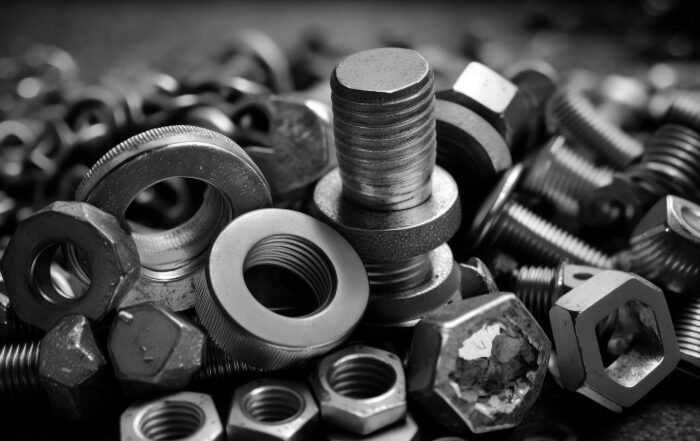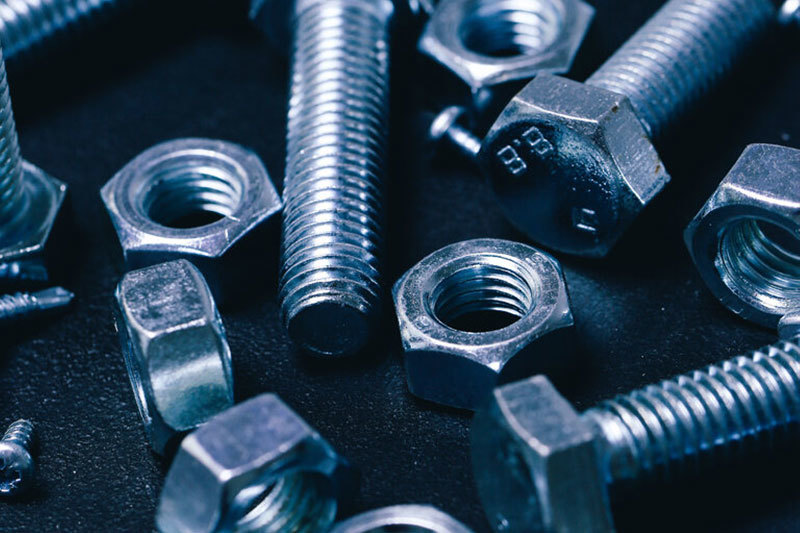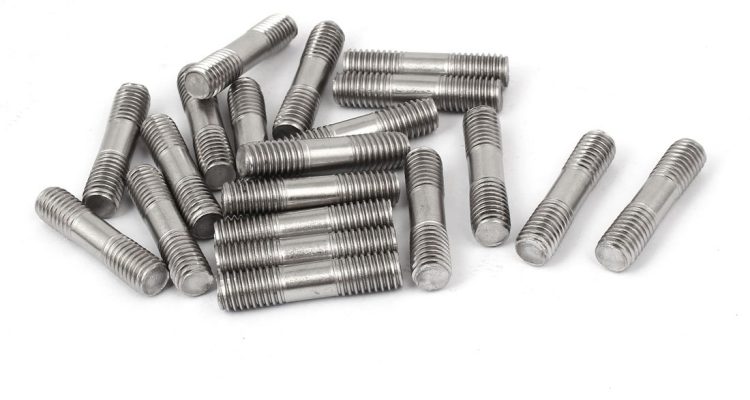
What are the bolts material grades
Table of Contents
ToggleGrade 2
Grade 2 bolts are made from low carbon steel and possess a minimum tensile strength of about 60,000 psi and a yield strength of approximately 36,000 psi, which makes this grade of bolt suitable for applications where load-bearing is not critical. For example, the use of Grade 2 bolts with a diameter of 1/2 inch in securing a wooden frame for a residential deck can hold as much as 3,000 pounds of shear force. This capacity would suffice for most light to medium construction projects.
On the other hand, size options are many since Grade 2 bolts come in various lengths, typically from 1 inch to 12 inches. One such bolt chosen very recurrently is the 3-inch Grade 2 bolt, which measures about 0.14 pounds in weight. Upon taking a look at the price for the whole project, a pack of 100 bolts should range from $10 to $30. For that reason, they tend to be reasonably expensive for builders and for DIY individuals too since one can be in a position to acquire them from any hardware shop in the desired numbers without wasting time.
In fact, Grade 2 bolts work great for general purposes such as assembling cars, fixing things around the house, and many other tasks. For instance, if some furniture is to be built, these bolts can join pieces together by clamping joints with substantial force. They are normally used together with nuts and washers so that the load will be distributed to provide added stability. A typical assembly will use 8 to 12 bolts, with fastener costs of approximately $1 to $3.

Grade 5
Grade 5 bolts are made from medium carbon steel, which gives them a higher tensile strength than Grade 2-grade fasteners. These are rated at about 100,000 psi, with a yield strength of roughly 92,000 psi. This strength enables their application in areas where much more robustness is required, for instance, automobiles and heavy machinery. As an example, Grade 5 bolts can sustain high shear forces when used in vehicle suspension—for example, approximately 1,500 pounds for a bolt with a 1/2-inch diameter—and are thus fitting even for the most critical load-bearing operations.
As far as dimensions are concerned, Grade 5 bolts range from 1/4 inch to 1 inch in diameter. A frequently used size is that of the 3/8-inch Grade 5 bolt, weighing approximately 0.08 pounds per inch. Assuming that to be a standard length, or 4 inches, each bolt would be about 0.32 pounds. Fifty such bolts would have a total weight of about 16 pounds, which is useful to know in cost consideration for shipping and material handling.
Cost-wise, Grade 5 bolts generally range in price from $0.20 to $0.50 each, depending on the supplier and the quantity of purchase. Quantities as low as 100 bolts have been known to go for $20 to $50. For such a reasonable price considering their strength and reliability, they surely become very attractive to contractors and serious DIYers alike. The investment made in Grade 5 bolts pays for itself in durability, reducing the need for future replacements and maintenance.

8th Grade
Grade 8 bolts are made from alloy steel that has been heat-treated to develop a very strong bolt, and for this grade, the minimum tensile strength is normally 150,000 psi with a yield strength of about 130,000 psi. This superior strength enables these bolts to perform outstandingly in heavy machinery, automotive parts, and structural connections. For example, a Grade 8 bolt with one inch in diameter is able to support shear forces upwards of 2,000 pounds.
Sizes for Grade 8 bolts range in diameter from 1/4 inch to 1 inch and can be found in lengths from 1 inch up to 12 inches or more. For example, a typical 1/2-inch Grade 8 bolt weighs about 0.42 pounds per inch. However, in a construction project that requires 20 of these bolts at 3-inch lengths, the weight would approximately be 25.2 pounds, which is very important in logistics and load calculations in its assembly.
Speaking from a cost point of view, Grade 8 bolts are generally a little more expensive than the lower grades and could run in costs from $0.50 to $1.50 each, depending on the size and the amount of the purchase. If one were to make a bulk purchase, 100 Grade 8 bolts could cost anything between $50 and $150. That investment is justified with their strength and reliability since the usage of Grade 8 bolts may reduce the risk of failure in critical applications and save money associated with maintenance and replacements.

Grades of Stainless Steel
Basically, the corrosion resistance of stainless steel bolts is superlative with great endurance. Grade A2 is another name for 304 stainless steel; it has a tensile strength of about 70,000 psi and a yield strength of about 30,000 psi, thus being very versatile for uses from outdoor furniture to kitchen equipment in marine applications. For instance, a 1/2-inch diameter A2 bolt supports a shear force of about 1,200 pounds. Since it does not expose the components that it fastens to risks of rust due to moisture, it is pretty effective.
Grade A4 stainless steel or simply 316 stainless steel possesses a higher resistance to corrosion because of the molybdenum added into the steel. With a minimum tensile strength of 80,000 psi and yield strength of around 40,000 psi, Grade A4 bolts work quite well in the marine atmosphere and chemical processing. Typical shear forces that a 3/8-inch A4 bolt can bear are about 900 pounds. This is very important when placing equipment on ships or offshore platforms where saltwater will have a major effect on other materials.
Size: Stainless Steel Bolts come in a variety of diameters and lengths. A common size for this type of bolt is the 5/16-inch diameter bolt, weighing about 0.05 pounds per inch for A2 and a bit more for A4 because of its alloy composition. For a project that required 100 bolts, each 2 inches in length, a total weight of about 10 pounds for A2 bolts and around 11 pounds for A4 would be realized. Weight becomes an important factor in the aspect of shipping and in structural calculations.
Stainless steel bolts are relatively expensive to their carbon steel sisters concerning cost. Prices can also range from $0.20 to $1.00 for one A2 bolt, while one A4 bolt can range from $0.50 to $2.00, depending on the size and supplier. For example, one may purchase 100 A2 bolts for about $50, while 100 A4 bolts would cost about $150. While more expensive to start with, the long-term advantages in corrosion resistance and durability mean lower maintenance costs and a longer life-span in environments where ‘normal’ steel would last only a very short time.
Grades of Stainless Steel
The stainless steel bolts, especially the A2 and A4 grades, have become synonymous with very good corrosion resistance and strength. In particular, Grade A2, also called 304 stainless steel, offers a tensile strength of approximately 70,000 psi with a yield strength of about 30,000 psi, which for general applications includes outdoor furniture, equipment in kitchens, and even in marine applications. For instance, the 1/2-inch diameter A2 bolt will resist shear of around 1,200 pounds. This becomes very helpful in securing components that are exposed to moisture without the risk of rust.
Grade A4 or 316 stainless steel has increased corrosion resistance due to the addition of molybdenum and therefore is better in harsh environments. It’s the Grade A4 bolts that require at least tensile strength of 80,000 psi, with a yield of about 40,000 psi, by applications in marine services and chemical processing. The typical 3/8 inch A4 bolt would take in shear forces of about 900 pounds. That strength becomes very important when it comes to bolting equipment on either ships or offshore platforms where saltwater will have other materials deteriorate significantly.
The sizes of the stainless steel bolts vary in diameter and length. The common size of a bolt is the 5/16 inch diameter, which weighs about 0.05 pounds per inch for A2 and a little more for A4 due to the alloy composition of the material. If a job requires 100 bolts at a length of 2 inches, the weight would come out to about 10 pounds for the A2 bolts and around 11 pounds for A4 bolts. The weight is an important figure to know based on shipping and structural calculations.
Expense: Stainless steel bolts are normally more costly compared to carbon steel substitutes. A2 bolts cost anywhere from $0.20 to $1.00, depending on the size, while A4 bolts can be acquired for $0.50 to $2.00 based upon size and supplier. To put this in concrete terms, one might purchase 100 A2 bolts at approximately $50, but for the same amount, 100 A4 bolts would cost about $150. Whereas the initial investment is more costly, the long-term benefits in corrosion resistance and durability can lead to lower maintenance costs and longer life spans. The latter is especially the case for those environments in which standard steel would fail much faster.
Other Grades
Apart from the more recognized grades, including Grade 2, 5, 8, and stainless steel, there are several other grades that also meet specific needs in a wide array of applications for each industry. Another very popular bolt grade is the Grade 9 bolt, made from high-strength alloy steel. These bolts have a minimum tensile strength of about 130,000 psi and a yield strength of approximately 120,000 psi. This makes them suitable for demanding applications, such as aerospace and high-performance automotive components. A Grade 9 bolt, of diameter 1/2 inch, will resist shear forces of about 2,400 pounds by its strength to ensure no failure in critical environments.
Another very relevant class is that of the ASTM A193 Grade B7 bolts—steel alloy bolts intended for high-temperature and high-pressure applications, to which the oil and gas industry is commonly subjected. These bolts have a minimum tensile strength of 125,000 psi and are very commonly used in flanged joints and pressure vessels. Common sizes, like the 3/4-inch A193 B7 bolt, bear shear forces of approximately 4,500 pounds each and become essential in maintaining integrity in scenarios involving high stress.
Another example that assures the same strength but is commonly used in light-duty applications is an A307 Grade A bolt. Having been fabricated out of carbon steel, these kinds of bolts have a minimum tensile strength of 60,000 psi. Most of the general-purpose fastening works are designed by these types of bolts. For instance, a 5/16 inch A307 Grade A bolt can withstand an approximate shear force of 700 pounds. They find their application indoors in furniture assemblies due to minimal exposure to harsh environmental conditions.
Cost issues also range across these other grades. The Grade 9 bolts can range anywhere from $0.75 to $1.50, depending on size and supplier. ASTM A193 Grade B7 bolts fall in a range of $1.50 to $3.00 each due to their specialized application and higher material requirements. A307 Grade A, being of lower strength, the bolts are way more inexpensive, costing in the range of $0.10 to $0.30 each. These costs help in the budgeting of projects, while the proper grade of bolt for a particular application is selected with great care so that performance and safety may be maintained.



